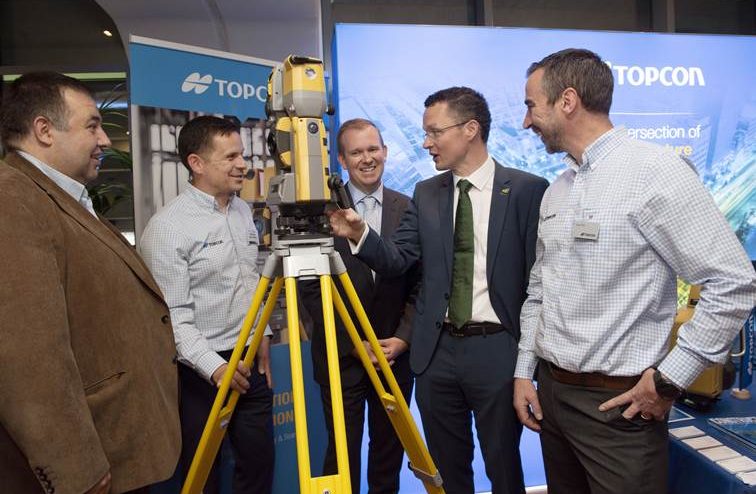
72% of Irish construction companies say new technology has improved their productivity in the industry, according to a recent Construction Industry Federation (CIF) survey.
According to Sean Downey, CIF Director, Specialist Contracting: “CIF have led the discussion on digital transformation since the establishment of the National BIM Council in 2015. Our primary agenda has been to enable our member companies to understand what clients need, how these needs are changing, and to be in a position to respond. Through the CIF’s Construction 4.0 committee, our objective is to facilitate SME adoption and enable regional members to avail of the national supports through both Enterprise Ireland and their local LEO office.
“With the development of a National Digital Centre of Excellence about to be launched, Digicon 2019 promises to provide industry stakeholders, contractors, developers and the entire supply chain with a snapshot of where we are as an industry in our digital journey. Our expectation is that digital transformation will no doubt help answer some of the productivity challenges that exist, but we need all parties to the project including clients to truly come on board.”
When asked if robotics or AI could potentially reduce the number of construction workers on site, 56% of Irish construction firms said yes, showing a close 50/50 split, and an optimism that advancement in technology does not necessarily mean a loss of jobs for the construction industry.
Further CIF research has shown that young people are not entering the industry with around 40% of parents stating that they would not support their child’s decision to work in construction. With the industry reporting acute skills shortages in certain area, construction technology will play a significant role in ensuring the industry can deliver critical housing and infrastructure in the coming decades.
The CIF survey also found that 54% of construction companies have invested in new technologies over the past 12 months, with 62% stating that Building Information Modelling (BIM) technology would be important to their business in the future.
These results come after a recent CIF report on productivity, which showed that there was a 20% increase in investment in building and construction in 2018, with €26 billion invested during the year.
With 62% of respondents planning to invest in new construction technology in the future, it is clear that improving productivity through technology will be an important part of the future with construction.
Tom Parlon, CIF Director General, said: “The future of construction is digital. It will improve productivity, AI can reduce workplace accidents, foster collaboration that makes us more efficient.
“People may be concerned about automation replacing workers, but construction technology will also future-proof jobs and enable radically new high-end careers. By supporting our workforce and embracing technology our construction workers can stay relevant and develop rewarding careers.
“We have to aim for a future where technology supports human initiative and creativity to generate new innovative construction. Judging by the crowd we have today at Digicon and the talent on show, I think we can aspire to that future with confidence.
“But a tech-enabled construction industry isn’t far off in the future. We simply must adopt the technologies of tomorrow, today, to solve the major challenges we face.
CIF President Pat Lucey and I meet the Taoiseach Leo Varadkar to discuss obstacles facing the industry in delivering urgently-needed housing and critical infrastructural elements identified in the Government’s Project Ireland 2040 plan. Adopting technologies and practices such as BIM will enable this industry to deliver on these ambitious plans.
“Considerable progress has been made in the past couple of years in the implementation of the “Roadmap to Digital transition”. The recent launch of the BIM Starter Pack by the CIF Construction 4.0 Committee is another significant step in the sector’s digital transition.
“The next important stage will be the establishment of the Centre of Excellence for Digital Construction, which we hope to see in the coming months. I’d like to thank that committee and its members for progressing this issue so much over the past two years.”
These results come ahead of CIF’s Digicon conference, which showcases the latest technologies in construction and how the industry can move past the “catch-up” phase. Digicon will take place in Croke Park on 13th June 8 – 4pm.